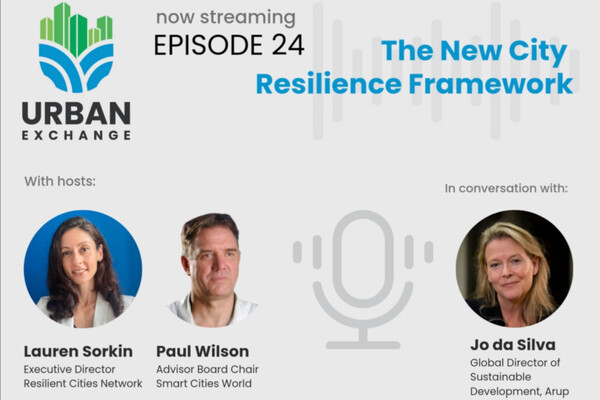Special Reports
SusHi Tech Tokyo 2024: experience ‘Tokyo 2050’ todaySponsored by The SusHi Tech Tokyo 2024 Showcase Program Executive Committee
Three ways to build a more environmentally conscious world
Innovative approaches used by cities and organisations to prioritise climate action and decarbonisation and create more sustainable urban environments.
Cities worldwide are increasingly prioritising climate action and decarbonisation initiatives to combat climate change and create more sustainable urban environments.
Recent developments spotlighted by SmartCitiesWorld this week in Atlanta and the UK, along with advancements in earth observation data, have only served to underscore the growing momentum towards cleaner energy and environmentally conscious practices.
1. Atlanta advances clean energy
The City of Atlanta has taken a new step towards advancing its Clean Energy Plan by establishing the Atlanta Community Energy Trust Fund. Mayor Andre Dickens’ authorisation of the fund, with an initial allocation of $500,000, reflects the city’s commitment to reducing energy burdens on households and achieving 100 per cent clean energy by 2035.
The fund will support clean energy projects and strategies aimed at addressing energy affordability and sustainability within the city, aligning with Mayor Dickens’ vision of fostering a more equitable and resilient community.
2. Transformed street cabinet used for EV charging
Meanwhile, in the UK, telecommunications provider BT Group has unveiled its first electric vehicle (EV) charge point powered by a transformed street cabinet, traditionally used for broadband and phone cabling. The initiative, launched in East Lothian, Scotland, marks the beginning of trials that could potentially revolutionise public EV charging infrastructure across the UK. Part of a nationwide pilot, the project demonstrates the vital role of public-private partnerships in driving sustainable transportation solutions and reducing carbon emissions from the transportation sector.
3. Expoiting the potential of earth observation data
Finally, we report on the findings from a recent study by the World Economic Forum and Deloitte, which highlights the immense potential of earth observation (EO) data in mitigating climate change and driving economic growth. With the capacity to eliminate 2 gigatonnes of greenhouse gas emissions annually and generate over $3 trillion in cumulative economic benefits globally by 2030, the report highlights that EO data can be a powerful tool for informing climate action and promoting sustainable development.
By leveraging advanced technologies such as artificial intelligence (AI) and digital models, EO data can facilitate innovative solutions across sectors, ranging from disaster response to renewable energy, paving the way for a more sustainable and resilient future.
By leveraging innovative technologies, fostering public-private collaborations, and prioritising climate-conscious policies, cities and organisations worldwide can play a pivotal role in mitigating climate change and building a greener future for the long term.


















